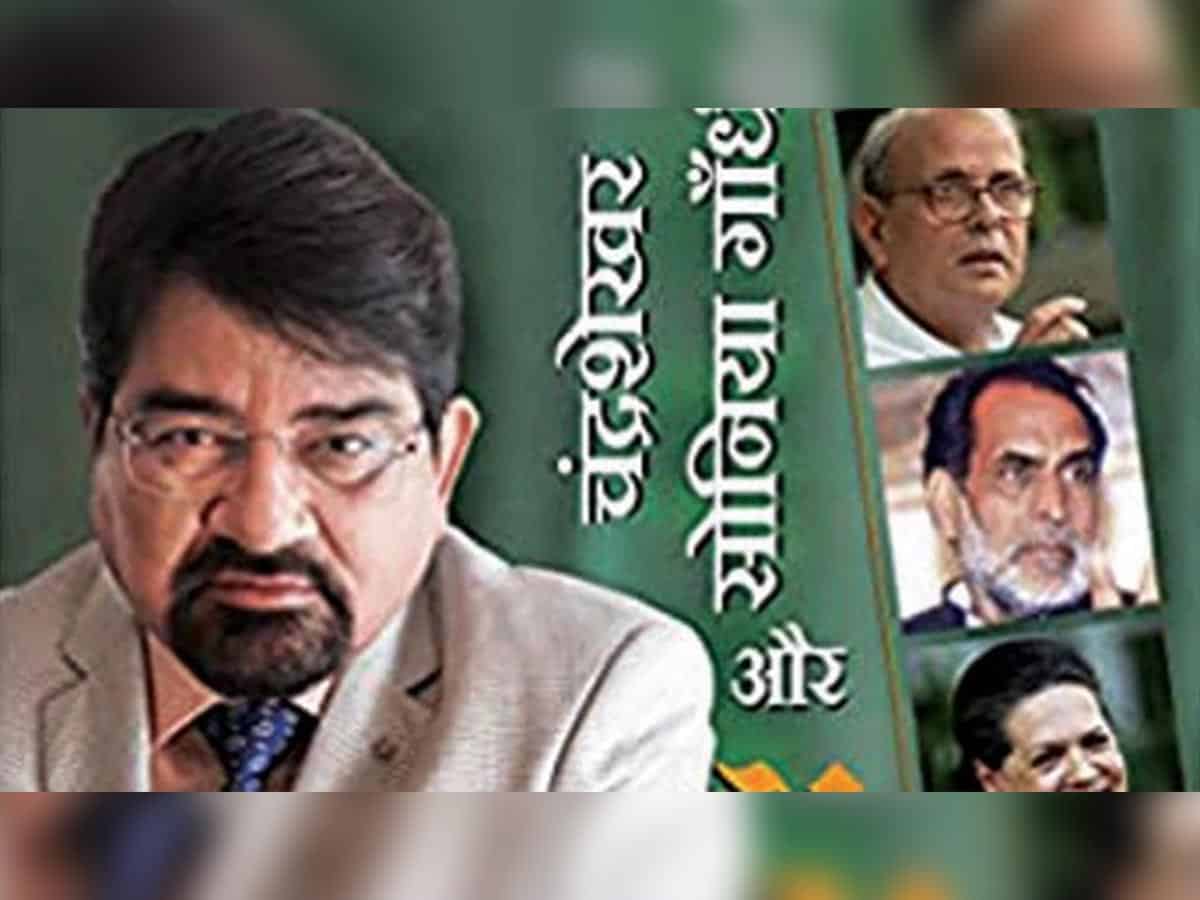By Shah Ajmal Farooque Nadvi
The book VP Singh, Chandrasekhar, Sonia Gandhi Aur Main is penned by one of the leading journalists and former Member of Parliament, Santosh Bharatiya. The 500-page book contains important events of VP Singh, Chandrasekhar, and Sonia Gandhi’s era, the background of these events, the turning point of independent India the author’s personal relation with the above three personalities, and the essence of the confidential conversation of the author with these leaders. The book reveals myriads of facts that have not come to the notice of India till date. There are numerous such incidents about Amitabh Bachan, Rekha, Lal Krishna Advani, Morarji Desai, Ram Vilas Paswan, Pandit Avaidhnath, Sitaram Kesri, Dhirubhai Ambani, Raj Babar, Bala Sahib Thackeray, and etc., which are not known to the common people who are familiar with the street politics. There are many incidents that seem trivial, but they were significant for understanding the personality and circumstances. The same is true with the hundreds of incidents and allusions scattered throughout this book. From these incidents, we understand the pulse of independent India and know the thoughts and ideas and the methods of many important personalities of independent India.
Santosh Bharatiya is a well-known persona of the country, who has been a Member of Parliament for a term. Politics and journalism both are related to the ground. That is why Santosh Bharatiya understands the mood and color of India very well. While maintaining his particular political ideology, he insists on making democracy and secularism the soul of India. In his book, he mentions a number of historical occurrences that educate us to build a true India. The language of the book is fairly clear and easy to understand. Therefore, the continuity that is established while reading does not break easily.
This book by Santosh Bharatiya is also important for Indian Muslims in the sense that it refers to a number of important issues related to Muslims. The issues of Muslim divorce law and the Babri Masjid have been the most important for Muslims in independent India. Apart from these, sectarian riots in Hashimpura, Meerut, Bhagalpur, Gujarat, and other parts of Uttar Pradesh have had a profound effect on the lives of Indian Muslims. Santosh Bharatiya has made important revelations about these issues in his book. The revelations can be of great help to Indian Muslims in planning for the future. They can understand in the light of these incidents that issues arising at the national level cannot be resolved at the community level. We have made this mistake in many cases. This book provides an important opportunity to correct these mistakes.
One of the attractions of this book for the Muslims of India is that they can see many important Muslim personalities who worked for the betterment of our society. Santosh Bharatiya has specifically mentioned Dr. Muhammad Manzoor Alam, General Secretary, All India Milli Council. This book shows that Alam very quietly took many steps for the benefit of the Muslims, which could neither be exposed to the world nor he felt the need to make them public. But Santosh Bharatiya, while playing the role of a real journalist and writer, has, in many places, raised the character of Dr Muhammad Manzoor Alam and paid tribute to him. That name of is the most beloved among the Muslim intellectuals of independent India. Therefore, he has also attributed his book to Dr. Muhammad Manzoor Alam.
Although Santosh Bharatiya appears less in this book as a journalist, more as a politician, and as a political analyst, it also contains crucial information for those interested in journalism. Mentioning Kamal Morarka and MJ Akbar, etc., the author has narrated many interesting things about the world of Indian journalism.
The printing of the book is beautiful. It has been published simultaneously in Urdu, English, and Hindi. However, there are some instances of wrong spelling of words in the book, distance from modern scientific and common spelling, and improper structure of sentences in some places, affecting the appeal of the book. Nonetheless, to summarize, it can be said that the importance of this book has doubled in the present scenario of India. Its study provides an insight into the fabric of Indian society, the course of politics, and the methods and policies of politicians. Intellectuals, scholars, and students interested in the current situation of the country and concerned about the problems of Muslims in India must read this book.

